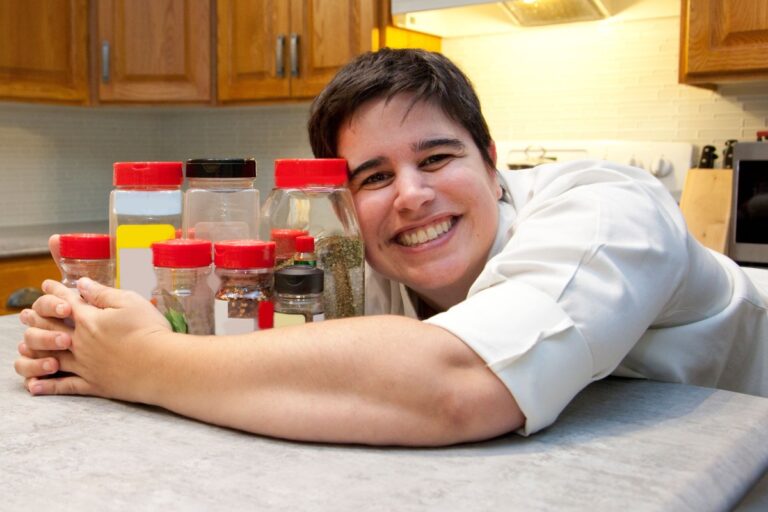Peace and Tranquility: 15 Best Herbs to Grow for Relaxation and Meditation
Incorporating herbs into your meditation practice can enhance relaxation, focus, and a sense of calm. Many herbs have calming properties that can help reduce stress, promote mindfulness, and create a soothing environment.
Growing these herbs at home allows you to have fresh, natural ingredients on hand for teas, essential oils, or simple aromatherapy. Whether you’re looking for a gentle scent to fill your meditation space or an herbal tea to relax your mind, these 15 herbs are perfect for meditative use.
Lavender
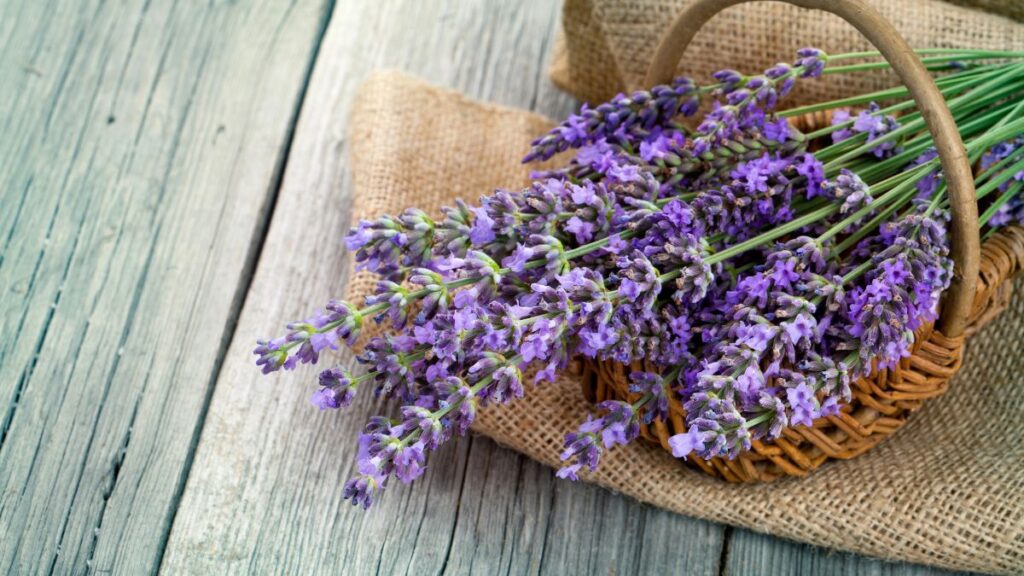
Lavender is well known for its soothing scent, making it a favorite for relaxation and meditation. The calming aroma helps reduce stress and anxiety, promoting a sense of peace and tranquility. You can grow lavender in your garden or in a pot by a sunny window.
The flowers can be used to make teas, oils, or dried for use in sachets. Incorporating lavender into your meditation routine can help you enter a relaxed state more easily. Just breathing in its fragrance can calm your mind and prepare you for a peaceful session.
Chamomile
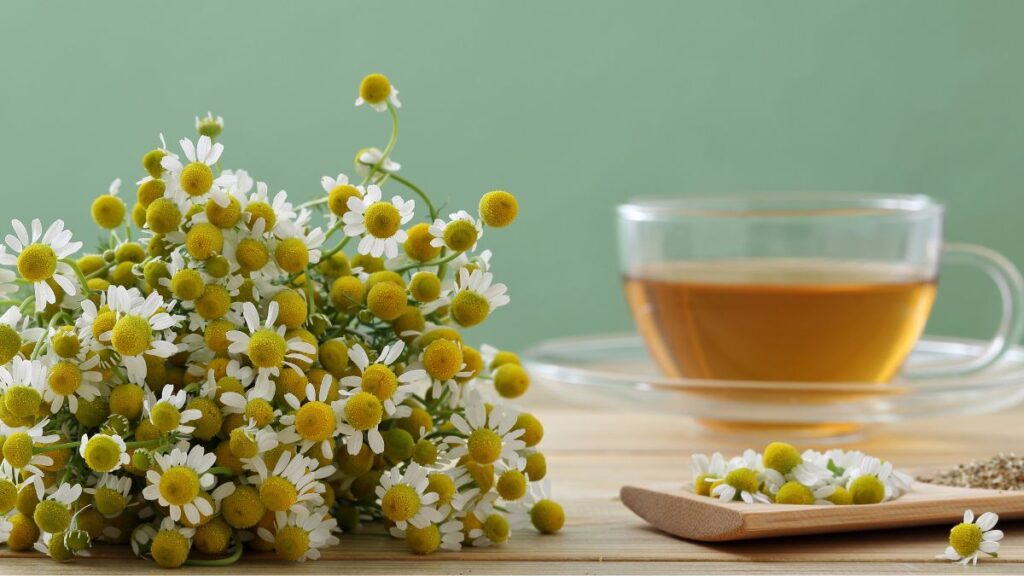
Chamomile is famous for its calming effects, often used to reduce anxiety and promote sleep. This herb is perfect for a calming tea before or after meditation. The gentle, sweet scent of chamomile also helps create a peaceful atmosphere, enhancing mindfulness during your practice.
Growing chamomile is easy, and the small, daisy-like flowers can be harvested for teas or infusions. Chamomile tea not only soothes the mind but can also help with digestion, further contributing to overall relaxation.
Peppermint
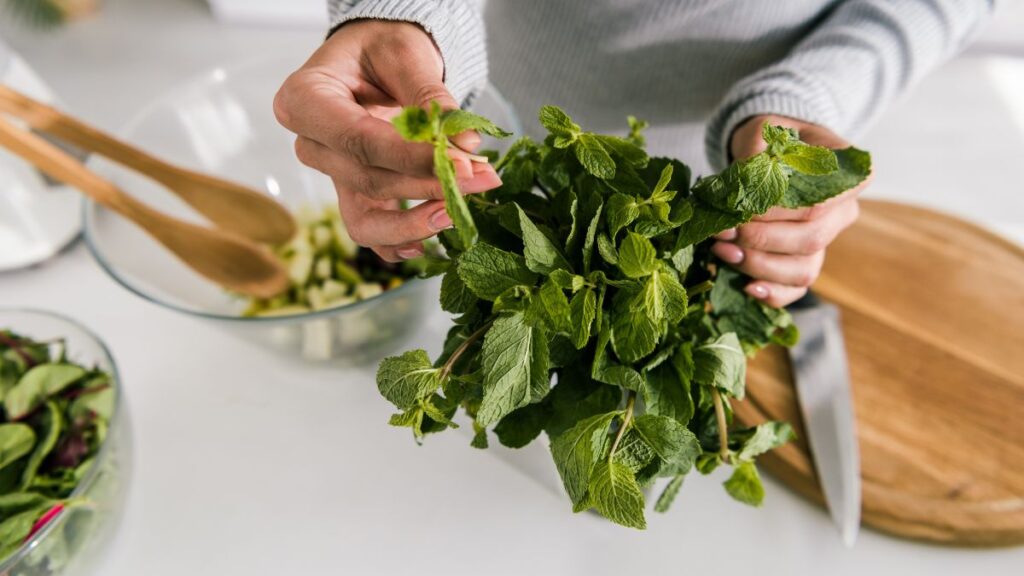
Peppermint is a refreshing herb that clears the mind and promotes focus, which is essential during meditation. Its invigorating scent helps to reduce tension and increase mental clarity. Peppermint can be used in teas, oils, or as a fresh herb to brighten your meditation space.
The cooling sensation from peppermint also aids in stress relief, making it an excellent choice for calming both the body and mind. It’s easy to grow and can thrive indoors or outdoors, providing a constant source of fresh leaves for meditation rituals.
Lemon Balm
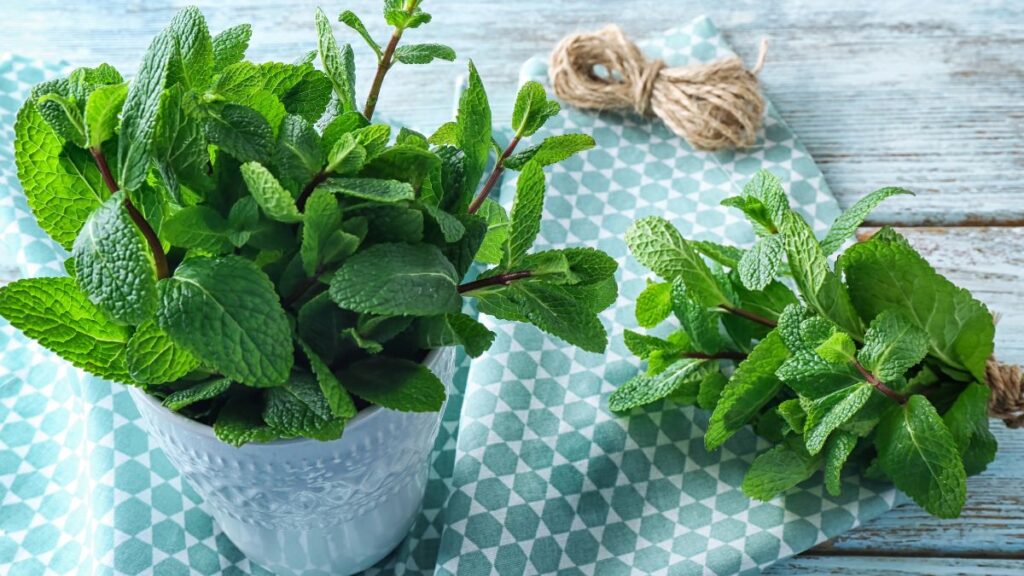
Lemon balm is a member of the mint family and is known for its calming and mood-lifting properties. The light, citrusy scent of lemon balm promotes relaxation and helps alleviate stress, making it an excellent companion for meditation.
This herb can be used in teas, as an essential oil, or simply by rubbing the fresh leaves to release its soothing aroma. Growing lemon balm is simple, and it can thrive in containers or garden beds. Its calming effect helps you focus and stay present during meditation.
Holy Basil (Tulsi)
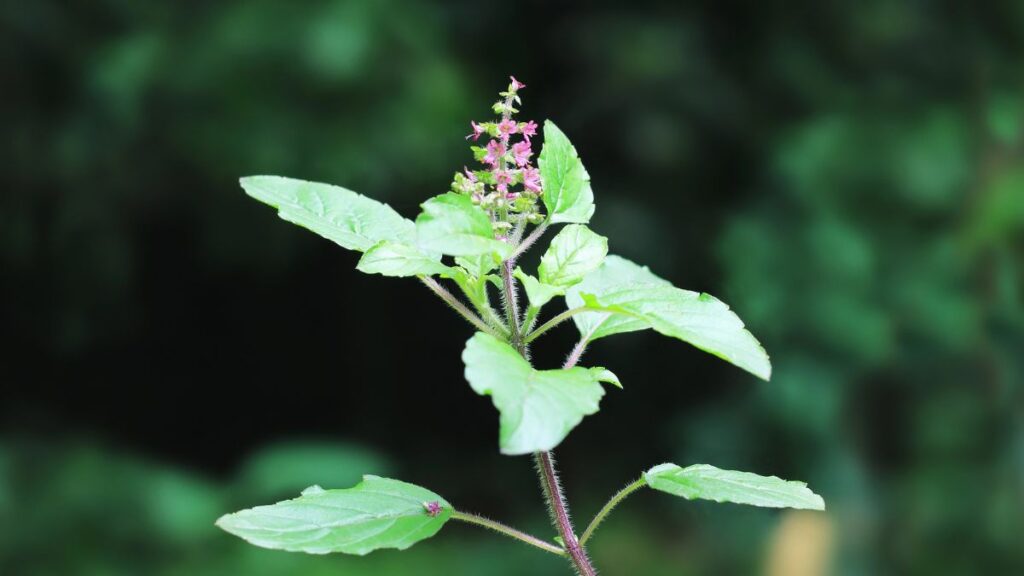
Holy basil, also known as tulsi, is revered in Ayurvedic medicine for its spiritual and calming properties. It is often used to enhance meditation and deepen spiritual practice. Holy basil has a slightly spicy aroma and is known to reduce stress and promote mental clarity.
Drinking tulsi tea or using the herb in essential oils can help center your thoughts and ease anxiety. Growing holy basil at home can give you access to this sacred herb whenever you need it, supporting both your meditation and overall well-being.
Rosemary
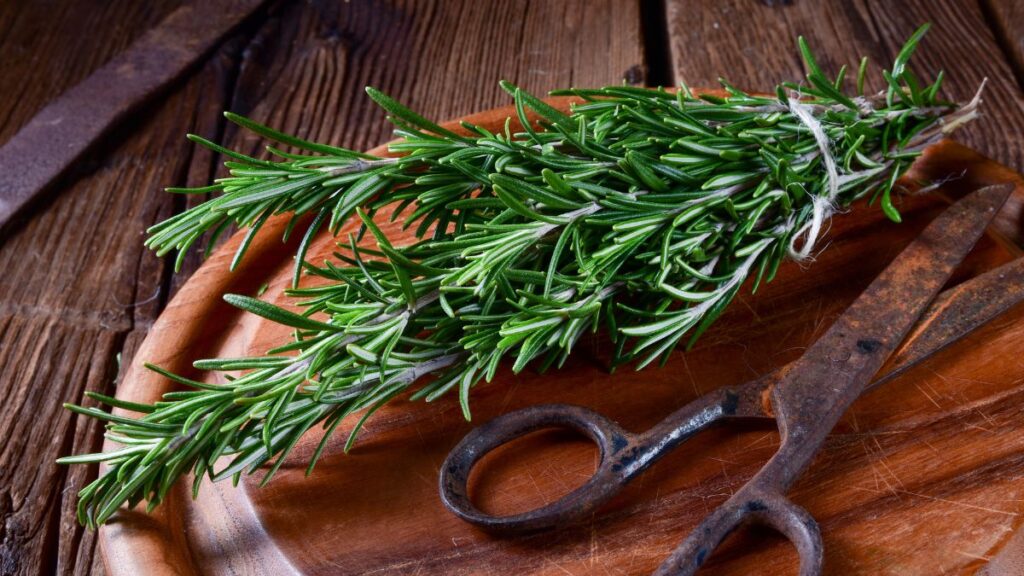
Rosemary is a stimulating herb that helps improve focus and concentration, which is beneficial for mindfulness and meditation. Its earthy, pine-like scent clears the mind, allowing you to concentrate better during meditation sessions.
While rosemary is typically known for its culinary uses, its invigorating properties make it an ideal herb for mental clarity. You can grow rosemary indoors or outdoors, and its fresh sprigs can be used in teas, oils, or for aromatherapy. Including rosemary in your practice can keep your mind sharp and focused.
Sage
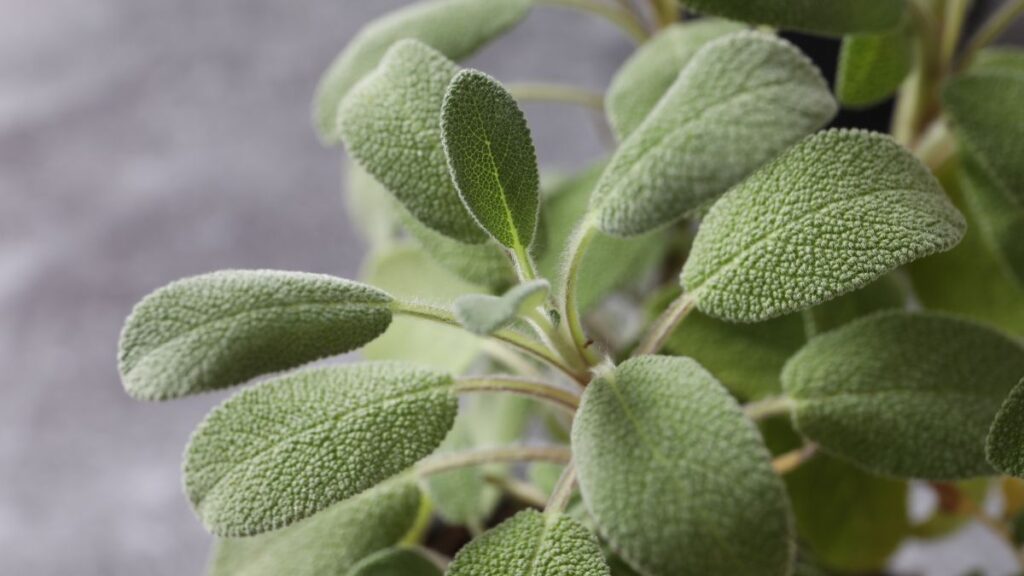
Sage has long been used for spiritual cleansing and meditation. Its strong, earthy scent is believed to clear negative energy, creating a purifying atmosphere. Burning dried sage, known as smudging, is a popular ritual to cleanse a space before meditation.
Sage can also be used in teas to promote inner peace and clarity. Growing sage is easy, and its leaves can be harvested for both culinary and spiritual use. This herb helps promote a sense of calm and clarity, making it perfect for meditation.
Valerian
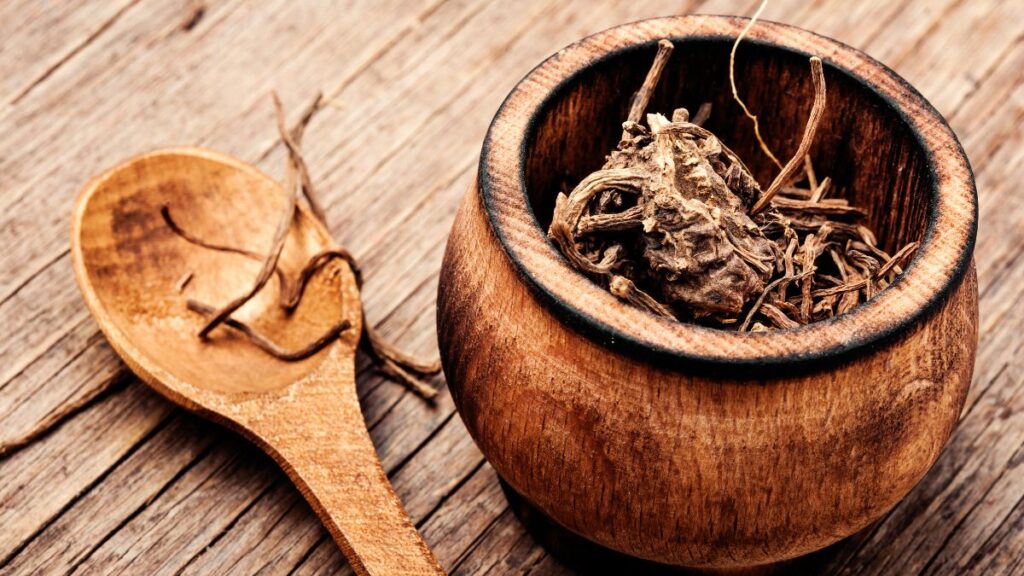
Valerian root is commonly used to promote deep relaxation and sleep, but it can also be used to enhance meditation. Its earthy, musky scent helps calm the nervous system, making it easier to relax and focus. Valerian is often used in teas or tinctures to soothe the mind and body, especially before meditation or bedtime.
Growing valerian at home allows you to harvest its roots for personal use, creating a calming tea to ease into a peaceful meditative state. Its strong sedative effects make it especially helpful for those struggling with stress.
Passionflower
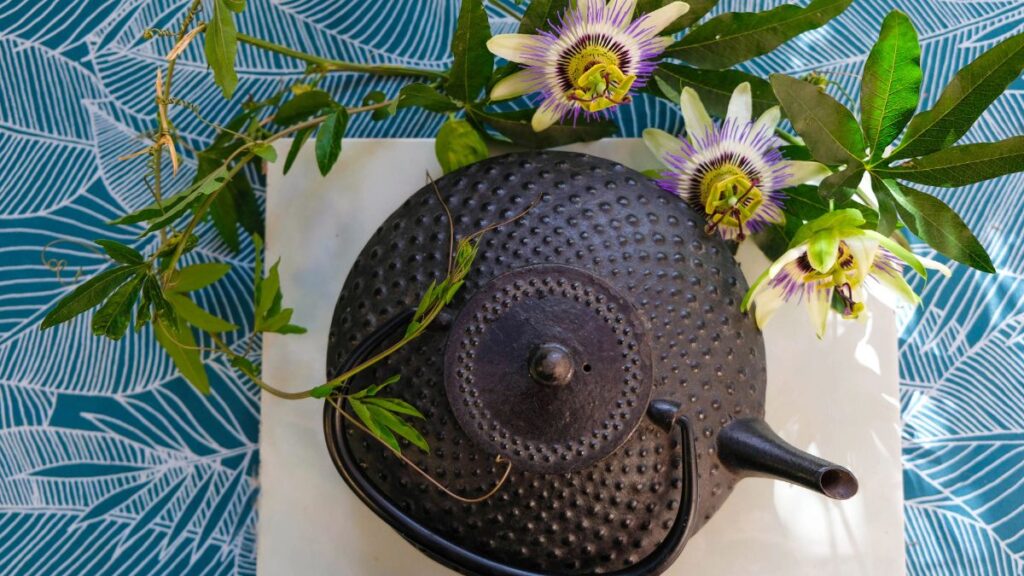
Passionflower is known for its calming effects, often used to reduce anxiety and promote a deep sense of relaxation. This herb can be used in teas or as a tincture before meditation to help ease the mind. The delicate flowers of passionflower add beauty to your garden, and the leaves can be harvested for calming remedies.
Its ability to soothe the nervous system makes it ideal for meditative practices, especially when seeking mental stillness. Growing Passionflower allows you to create a serene space both physically and mentally.
Lemon Verbena
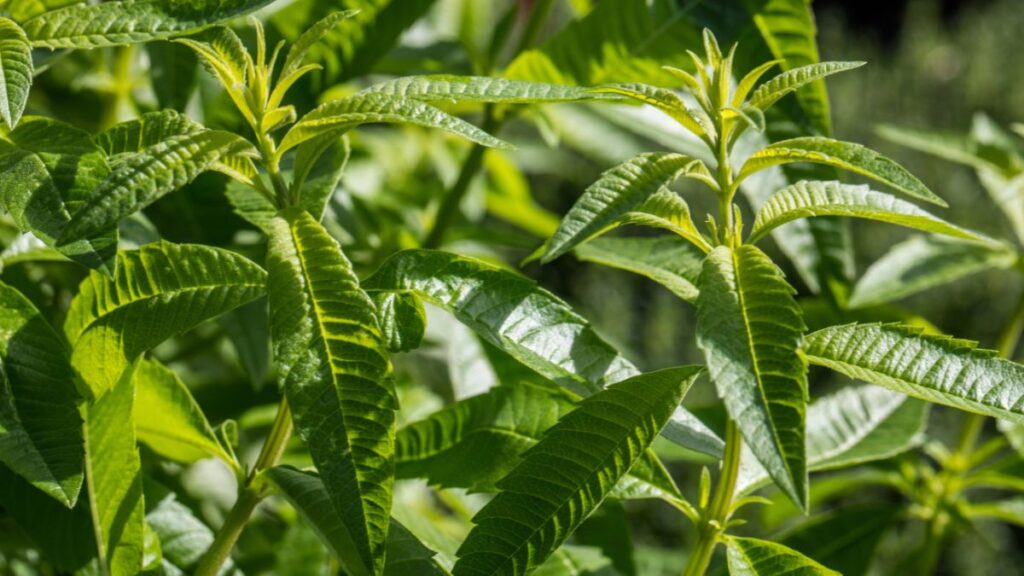
Lemon verbena is another citrus-scented herb that promotes relaxation and mental clarity. Its refreshing, uplifting aroma is perfect for reducing stress and enhancing focus during meditation. Lemon verbena can be used in teas or as an essential oil to fill your meditation space with a calming atmosphere.
It’s easy to grow in containers or gardens, and its leaves can be harvested for fresh or dried use. The herb’s bright scent helps clear the mind, making it easier to maintain concentration during meditation.
Thyme
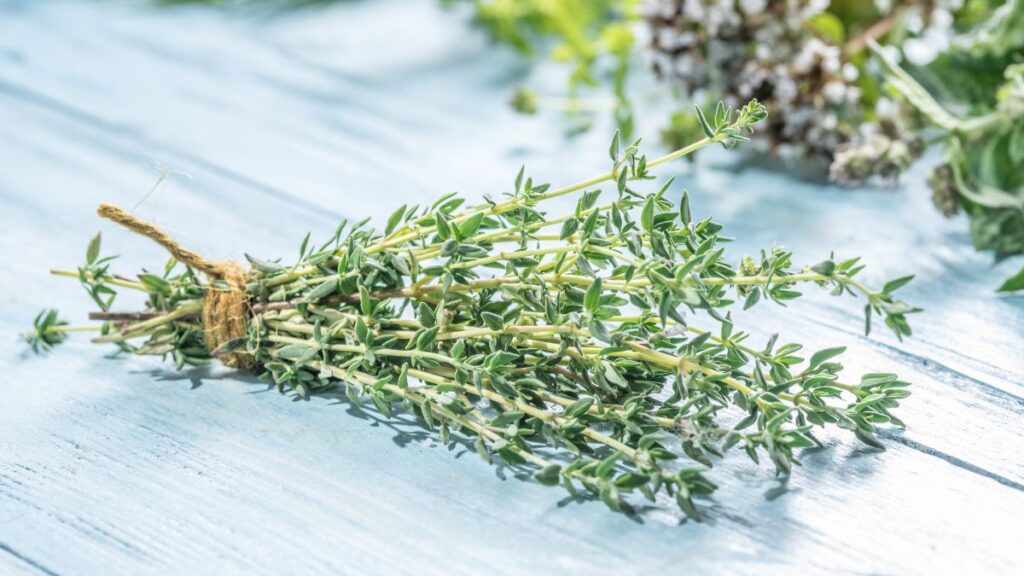
Thyme is a versatile herb that can help boost mental clarity and focus, which is essential for meditation. Its strong, slightly spicy scent clears mental fog, allowing for deeper concentration. Thyme can be used in teas, oils, or as an herb for aromatherapy.
Growing thyme in your garden or in pots is easy, and it thrives in sunny conditions. Including thyme in your meditation practice helps sharpen the mind and create a peaceful, focused environment.
Catnip
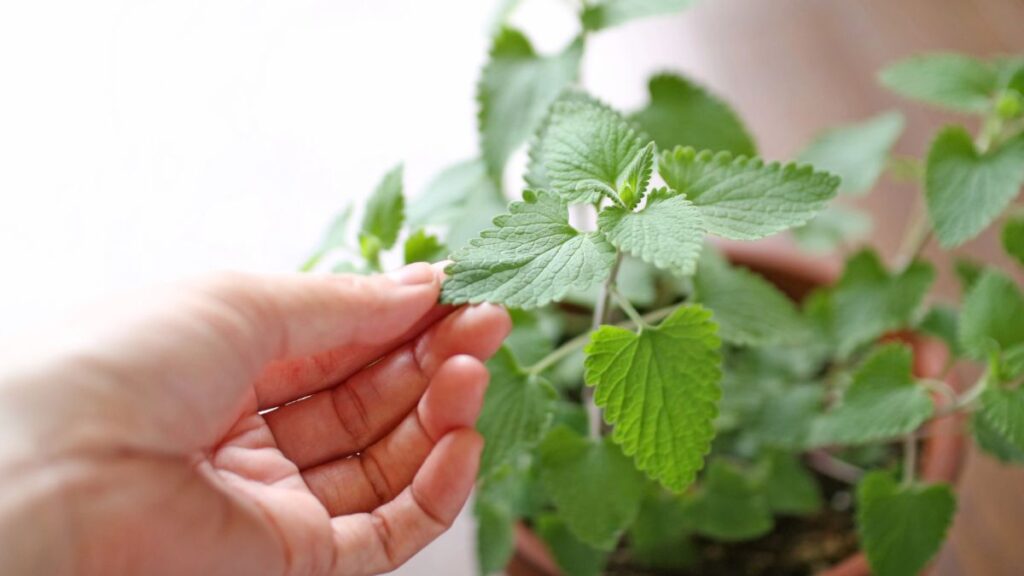
Though known for its effect on cats, catnip has calming properties for humans too. This herb helps reduce stress and anxiety, making it a great addition to a relaxing meditation routine. You can use catnip in teas or as an essential oil to enhance relaxation before or after meditation.
Growing catnip is easy, and it can thrive in most gardens. Its mild sedative effects make it perfect for calming the mind and entering a peaceful state of mindfulness.
St. John’s Wort
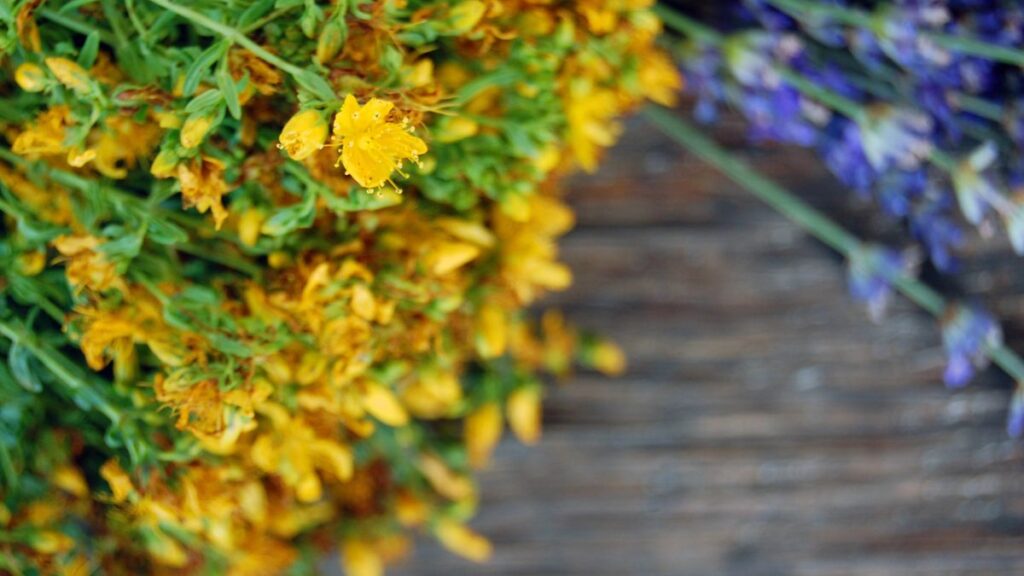
St. John’s Wort is well known for its mood-boosting properties and is often used to treat mild depression and anxiety. This herb can be a great addition to your meditation practice, helping to elevate your mood and promote a sense of calm. St. John’s Wort can be used in teas, oils, or as a supplement.
Growing this herb in your garden provides easy access to its healing properties, which can support mental wellness and spiritual practices. Its ability to lift the mood makes it a valuable herb for meditative use.
Clary Sage
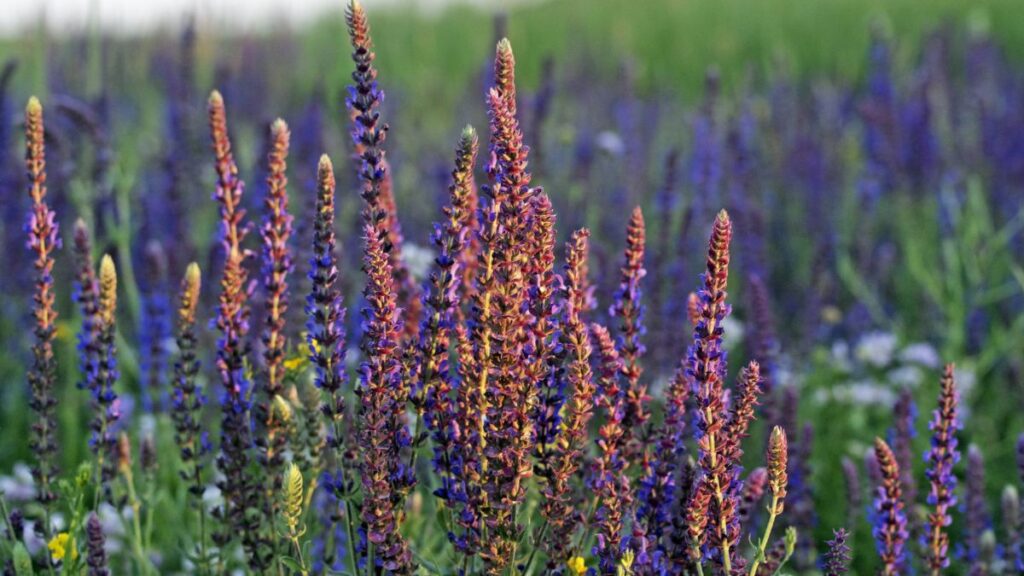
Clary sage is a highly aromatic herb with calming effects that enhance focus and spiritual clarity. Its sweet, herbal scent helps calm the mind and can be used to create a meditative atmosphere.
Clary sage can be burned as incense, used in teas, or applied as an essential oil to promote a deep sense of calm. This herb is easy to grow and can thrive in gardens or pots. Including clary sage in your meditation practice can help balance emotions and encourage inner peace.
Mugwort
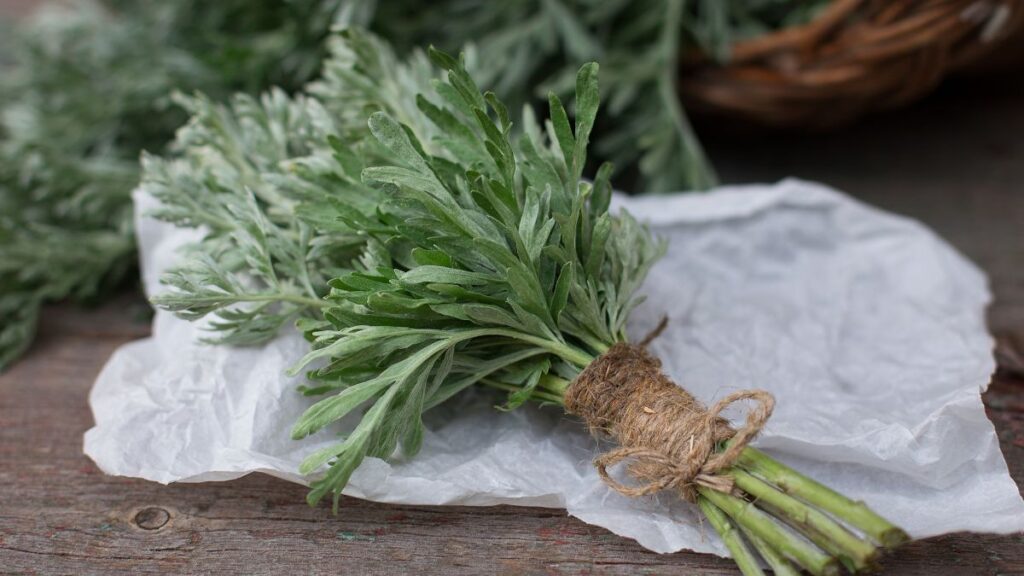
Mugwort is known for its ability to enhance dreams and deepen meditation. Often used in spiritual practices, mugwort can help create a stronger connection to your subconscious. Burning mugwort as incense or drinking it as tea can promote relaxation and vivid dreams, making it a popular herb for nighttime meditation.
Growing mugwort is simple and can add aesthetic and spiritual value to your garden. Its unique properties make it a favorite for those looking to enhance their meditation or dream practices.
15 Places Where You’re Expected to Tip—But You Really Don’t Have To

Tipping has become a widespread practice in many industries, with the expectation that you’ll leave a little extra for good service. However, not every situation truly warrants a tip, even if you feel pressured to give one.
15 Places Where You’re Expected to Tip—But You Really Don’t Have To
15 Most Annoying Habits of American Tourists When Dining Abroad

Traveling abroad is an exciting adventure, and dining in new places is a big part of the experience. However, some common behaviors by American tourists can be frustrating for locals and affect the dining experience.
15 Most Annoying Habits of American Tourists When Dining Abroad





